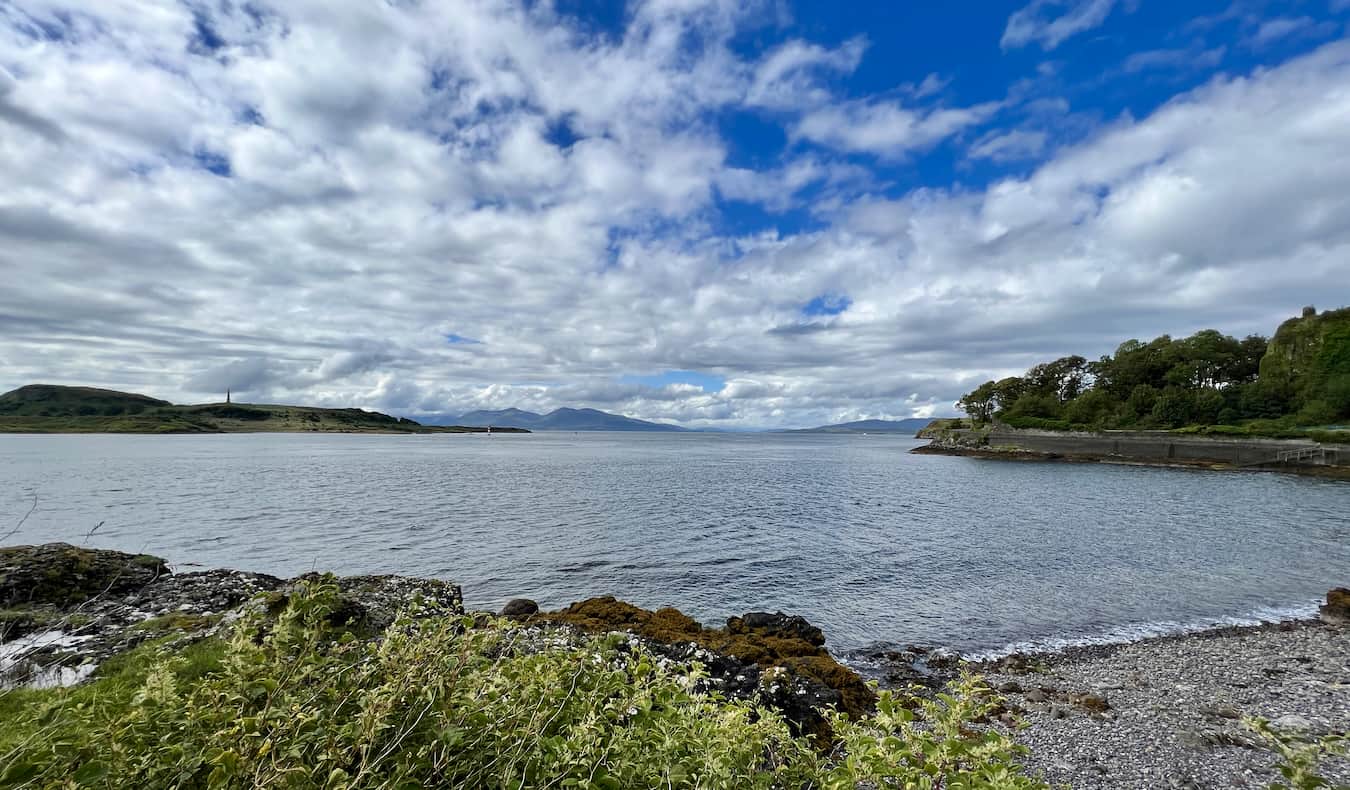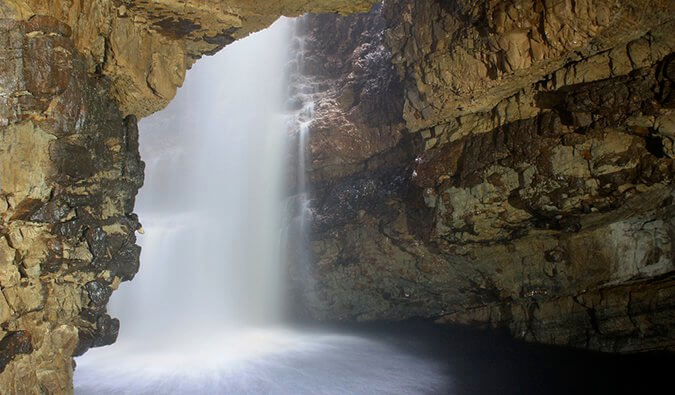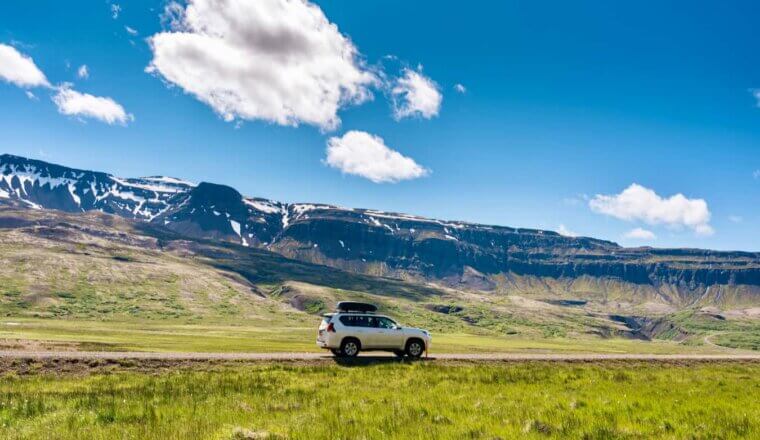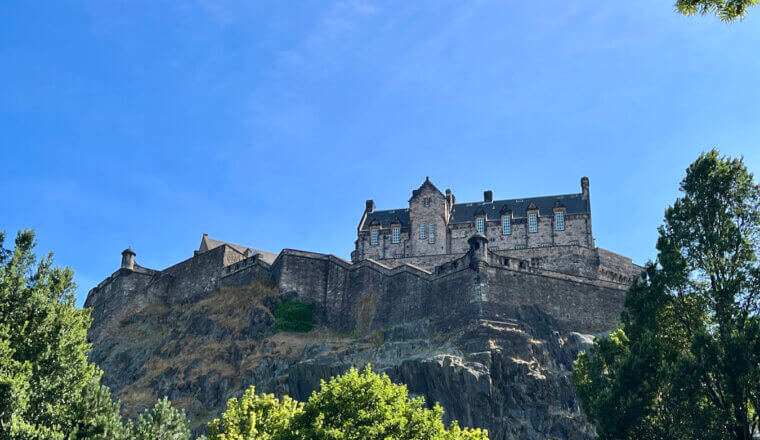10 Scotland Road Trip Tips You Need to Know Before You Go
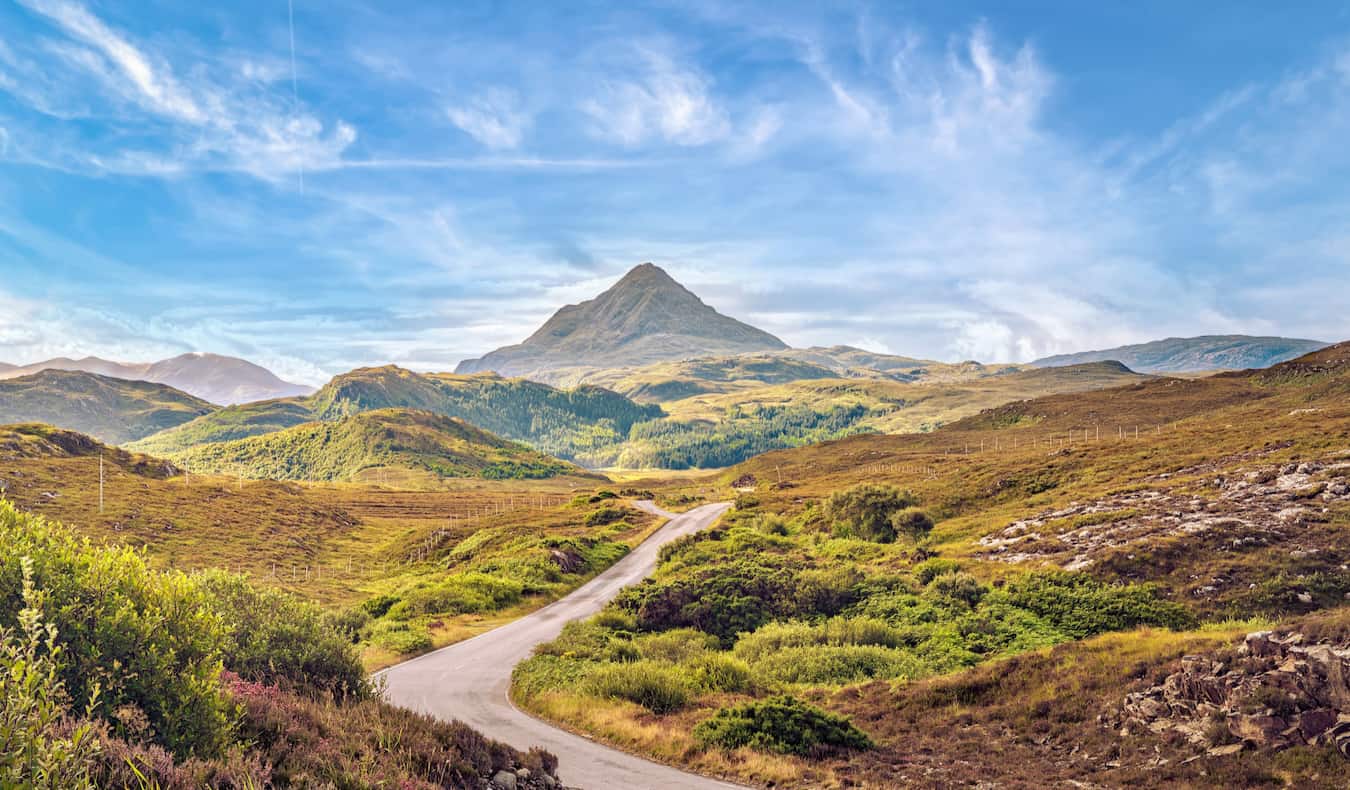
Posted: 5/23/24 | May 23rd, 2024
Scotland is a rugged and beautiful country that’s perfect for exploring on a road trip. The craggy coasts, placid lochs, and rolling hills make it a dream to discover. There are countless historic castles, iconic distilleries, and postcard-perfect islands at your fingertips.
I absolutely love Scotland. It’s stunningly beautiful and I can never get enough of the countless changing landscapes, Scotch distilleries, and warm, welcoming locals.
Having been to Scotland over a handful of times in the last decade, I think taking a road trip is the best way to explore the country. Home to just 5.5 million people, it’s a sparsely populated land, so much of your driving here will be out in the countryside. The country is just built for it.
But there are still a few things to keep in mind before you depart.
Here are 10 Scotland road-trip tips (plus my favorite routes) to help make your drive better, safer, and more fun (based on my experience at least):
Table of Contents
- 1. Get Travel Insurance
- 2. Rent the Right Vehicle
- 3. Be Ready to Drive on the Left
- 4. Understand Roundabouts
- 5. Know the Speed Limits
- 6. Add in Time for Scenic Stops
- 7. Download the Right Apps
- 8. Bring a Paper Map
- 9. Understand How to Drive on Single-Track Roads
- 10. Don’t Rush
- Suggested Routes
- Scotland Road Trip FAQ
- Get Your In-Depth Budget Guide to Europe!
1. Get Travel Insurance
I never leave home without travel insurance. And I never rent a car without comprehensive insurance either.
I know, it’s an added expense. And chances are you won’t even need it.
But what happens if you do need it and it’s not there? You’ll be paying out of pocket for damage. And that could cost you thousands.
Scotland has lots of narrow, rugged, or single-track roads (more on those later) that can be tricky to navigate. Tire and windshield damage is common. Throw in the ever-changing weather, and you’ve got recipe for trouble.
That’s why I strongly encourage you to take out car insurance for your road trip. The peace of mind is worth it.
When it comes to renting a car, I recommend Discover Cars. When you book, it’s easy to add car insurance onto your purchase with the click of a button. The site makes it clear what is covered and how much it costs.
You can use the widget below to get a quote. It’s fast and free:
2. Rent the Right Vehicle
You essentially have two choices when it comes to renting a vehicle in Scotland — and choice will drastically impact your trip. Your options are a car or a campervan.
A car will be cheaper and use less gas, but you’ll have to find accommodation each night. A campervan/RV will be more money and require more fuel, but you can sleep inside the vehicle and thus save money on accommodation. (It’s not my jam but to each their own.)
Both options make for an amazing trip, so there is no wrong answer. Just keep in mind that manual transmissions are the default in Scotland, so if you want a vehicle with automatic transmission, you’ll need to specify that while booking.
3. Be Ready to Drive on the Left
Traffic in Scotland flows on the left, just like the rest of the UK. This is the opposite of the US, Canada, and the majority of Europe (only Ireland, the UK, Malta, and Cyprus drive on the left in Europe).
If you rent a manual vehicle, you’ll be switching gears with your left hand instead of your right, which has a bit of a learning curve. (Personally, I prefer an automatic).
Old habits die hard, so if you’re used to driving on the right-hand side of the road, drive cautiously. Driving on the left can be especially challenging when you arrive at a roundabout (more on that below) or in a city. Take it slow at first, until you adjust.
4. Understand Roundabouts
Roundabouts are a traffic circles that serve as intersections, instead of stop lights or stop signs. They force vehicles to slow down without stopping the flow of traffic. While they aren’t especially common in the US, they are incredibly popular in Europe (they reduce serious traffic accidents by upwards of 90%).
Roundabouts are very common in Scotland. And they flow in the opposite direction (clockwise) than do those in the US (counterclockwise). When approaching a roundabout, slow down drastically and yield to traffic in the roundabout until you have an opening to enter the traffic circle. All traffic flows the same direction in a roundabout.
If there are multiple lanes, you’ll need to be on an outer lane when exiting. The inner lane of the roundabout is for cars not exiting immediately.
When you’re ready to exit the roundabout, signal so cars behind you know you will be turning.
If you’re not comfortable when you arrive at a roundabout, just take it slow and signal your intentions. They are much easier to handle than you think!
5. Know the Speed Limits
Posted speed limits in Scotland are written in miles. While this is helpful for Americans like me, travelers from countries that use kilometers will want to pay extra attention.
Common speed limits are:
- Built-up areas: 30 MPH
- Single roadways: 60 MPH
- Dual roadways: 70 MPH
- Highways: 70 MPH
These numbers are just guides, however. Always follow local signage to ensure safety. When in doubt, it’s always better to go slower rather than faster until you verify the speed. I’d write down some common conversions so you can have them handy if you get confused.
6. Add in Time for Scenic Stops
I know a lot of travelers like to really plan out their routes and itineraries. When you only have a few days, it can be tempting to plan everything to a T (I used to do this a lot). However, there are lots of diversions to explore in Scotland, from quaint towns to scenic vistas to short hikes.
You’re going to want to pull over every few minutes for a vista, mountain, loch, or abandoned castle. The landscape is so beautiful that even the average sights are Insta-worthy. For that reason, build in buffer time in your itinerary so that, if you decide to stop or take a little diversion, you’ll have the time. I can’t recommend this enough. Sometimes, the best parts of a trip are the ones you stumble into. And you definitely don’t want to be rushing from sight to sight either, so plan to be diverted.
7. Download the Right Apps
I know, when you head out on a road trip, the point is to get away from your phone so you can enjoy the local culture and stunning views. However, there are lots of apps out there that can help you save money, stay safe, and save time. Everyone road-tripping around Scotland should have the following apps downloaded to their phone:
- Met Weather – This is the best weather app for the UK. Conditions can change drastically in Scotland, so plan accordingly.
- Google Maps – The best app for looking up directions. Make sure to download your maps so you have them for offline use.
- Park4Night – A helpful app for finding spots to park for your RV or campervan (including free ones).
- Flush – A helpful app for finding public restrooms.
- Petrol Prices – An app for finding and comparing nearby gas prices for when you need to refuel.
8. Bring a Paper Map
Whenever I go on a road trip, I always bring a paper map. I know, Google Maps is easy and free, and mobile data coverage in Scotland is generally reliable. But it’s better to be safe than sorry. You never know when your phone is going to break, if your signal will be lost (likely to happen if you’re driving through remote areas), or if there will be an emergency.
Give yourself peace of mind: bring a paper road map, and just leave it in the glove box. You likely won’t need it, but if you do, you’ll be glad you have it (they make nice souvenirs after a trip too).
9. Understand How to Drive on Single-Track Roads
Once you get out of the cities, you may encounter single-track roads. These are essentially two-way roads that only have space for one vehicle. This means that if you encounter oncoming traffic, there is no room for you to pass one another.
Fortunately, these roads usually have passing areas built into them at regular intervals, allowing cars to pull over to make room. Take advantage of these when you see traffic coming, so that you can easily pass one another.
Additionally, take it slow around corners on single-track roads. Accidents can occur here because you can’t see oncoming traffic (with whom you’re sharing a lane). So, drive slowly, and always be prepared to stop.
Lastly, keep in mind that many single-track roads are a bit rugged. Blowing a tire can happen easily, especially if you’re pulling off to the side to make room for passing vehicles. For that reason, make sure you have a spare tire and that you also have insurance coverage for your tires, just to be safe.
10. Don’t Rush
While Scotland isn’t huge, there are still a lot of things see and do here. It may be tempting to rush, so you can pack more into your itinerary, but I strongly encourage you to not do so. Quality, not quantity, is the name of the game. I’ve been on countless road trips around the world, and slower is always better. That means driving less and spending more time at each stop. Do that, and you’ll be able to soak in a lot more of Scotland’s unique culture.
Furthermore, chances are you’ll be driving on a lot of smaller, winding roads here, often surrounded by ambling farm animals to watch out for. That means, for safety reasons, you’ll need to slow down and really focus on the drive. Admire the sights, leave room for spontaneous detours, and forget about rushing from sight to sight. You won’t regret it!
Suggested Routes
There are a few popular road trip routes in Scotland. They each offer different things to see and do, and each require different amounts of time to complete. To make the most of your time, pick the route that best suits your travel interests.
Here’s a quick look at a few of the best road trip routes in Scotland:
North Coast 500 – This is probably the most popular road trip route in the country. It loops around the northern tip of Scotland, usually starting and ending in Inverness. Popular stops include Bealach na Bà, Cape Wrath, Smoo Cave, John o’ Groats, and Dunrobin Castle.
You’ll want at least five days, though seven days would be preferable. Just keep in mind that it can get busy in the summer.
Edinburgh/Glasgow to Glen Coe – Glen Coe is a picturesque valley in the Highlands that’s both a National Scenic Area and National Nature Reserve. It’s a popular spot for photographers and hikers, and a must-visit location for anyone exploring the Highlands.
Glen Coe is just 2-2.5 hours from Glasgow and Edinburgh, making it an easy day trip (though I suggest stopping overnight, so you can really soak up the views). It’s also a part of several road trip routes, including the Argyll Coastal Route (listed next).
Argyll Coastal Route – This route along the west coast of Scotland stretches for 129 miles (208 kilometers), from Loch Lomond to Fort Williams. It’s a great alternative to the North Coast 500, as it’s less popular (and thus less crowded). Popular stops along this route include the Inveraray Jail, the cairns of Kilmartin Glen, Glen Coe, and Ben Nevis.
While you could easily drive the distance in a single day, plan to spend at least three days. That will give you time to see the highlights without rushing.
Highlands Tourist Route – Cutting across the eastern side of the country, from Aberdeen to Inverness, this route is a popular choice for history buffs, as there are numerous castle and museum stops, as well as the site of the last battle on British soil, the Battle of Culloden (1746).
The route is just 116 miles (187 kilometers), but at least three days are needed to take it all in.
Scotland Road Trip FAQ
How long do you need for a Scotland road trip?
Ideally, at least 5-7 days. Obviously, the length will depend on your itinerary, but that is a solid start.
If you pick a shorter route or just want to do a weekend road trip to camp, three days will suffice.
What is the most scenic drive in Scotland?
Some of the most scenic drives in Scotland include the Argyll Coastal Route, the entire North Coast 500, and the Highlands Tourist Route.
Is driving in Scotland difficult?
While driving in the cities can be a pain, once you get out into the countryside, it is very easy. Just use caution on single-track roads and in roundabouts — and remember that you have to drive on the left!
Can you drive onto the Isle of Skye?
Yep! It’s connected to the mainland via a bridge.
What is the best month for a Scotland road trip?
Generally, April-October is the best time to visit. Personally, I like the autumn, as you’ll get to see the changing leaves. It won’t be as warm, but prices will be lower and everything will be less busy.
Scotland is a beautiful destination and perfect for road trips. With stunning scenery, historic sights, plentiful hiking opportunities, and possible Loch Ness monster sightings, I think renting a car to explore is the best way to experience the country. Whether you want to discover the rugged coast or weave about the Highlands, having a car or campervan will make it both possible and affordable. Just follow the tips above and you’ll be sure to have an amazing time!
Get Your In-Depth Budget Guide to Europe!
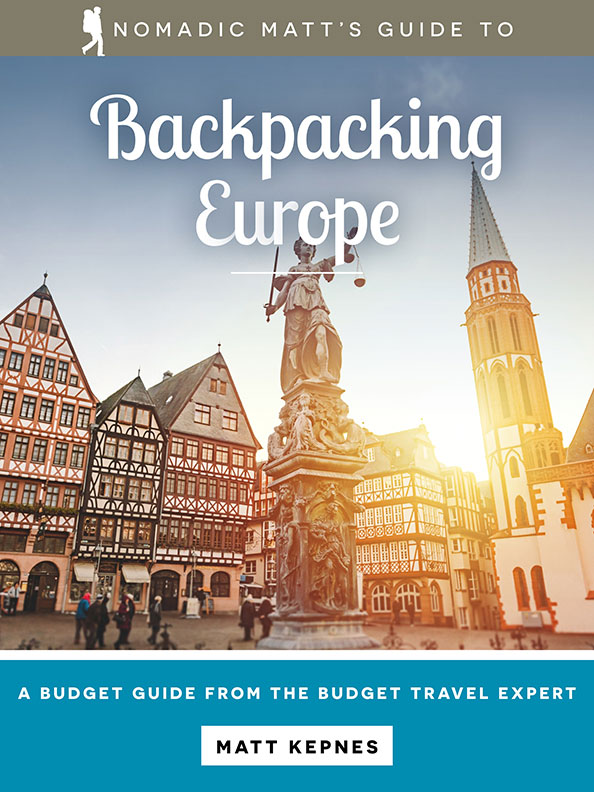
My detailed 200+ page guidebook is made for budget travelers like you! It cuts out the fluff found in other guides and gets straight to the practical information you need to travel while in Europe. It has suggested itineraries, budgets, ways to save money, on and off the beaten path things to see and do, non-touristy restaurants, markets, bars, safety tips, and much more! Click here to learn more and get your copy today.
Book Your Trip to Scotland: Logistical Tips and Tricks
Book Your Flight
Use Skyscanner to find a cheap flight. They are my favorite search engine because they search websites and airlines around the globe so you always know no stone is left unturned.
Book Your Accommodation
You can book your hostel with Hostelworld as they have the biggest inventory and best deals. If you want to stay somewhere other than a hostel, use Booking.com as they consistently return the cheapest rates for guesthouses and cheap hotels.
Don’t Forget Travel Insurance
Travel insurance protects you against illness, injury, theft, and cancellations. It’s comprehensive protection in case anything goes wrong. I never go on a trip without it as I’ve had to use it many times in the past. My favorite companies that offer the best service and value are:
- SafetyWing (best for everyone)
- Insure My Trip (for those over 70)
- Medjet (for additional evacuation coverage)
Looking for the Best Companies to Save Money With?
Check out my resource page for the best companies to use when you travel. I list all the ones I use to save money when I’m on the road. They will save you money when you travel too.
Want More Information on Scotland?
Be sure to visit our robust destination guide on Scotland for even more planning tips!

